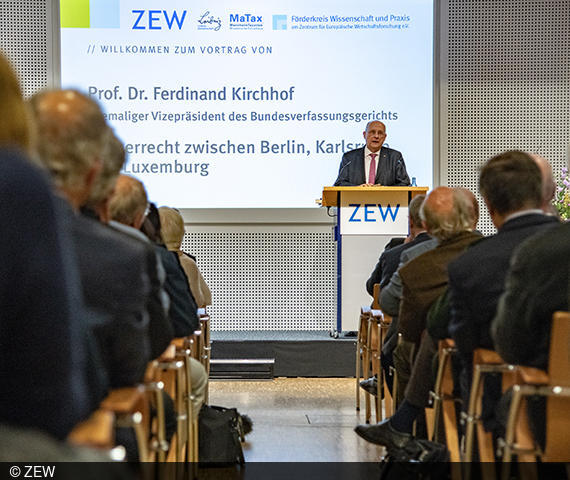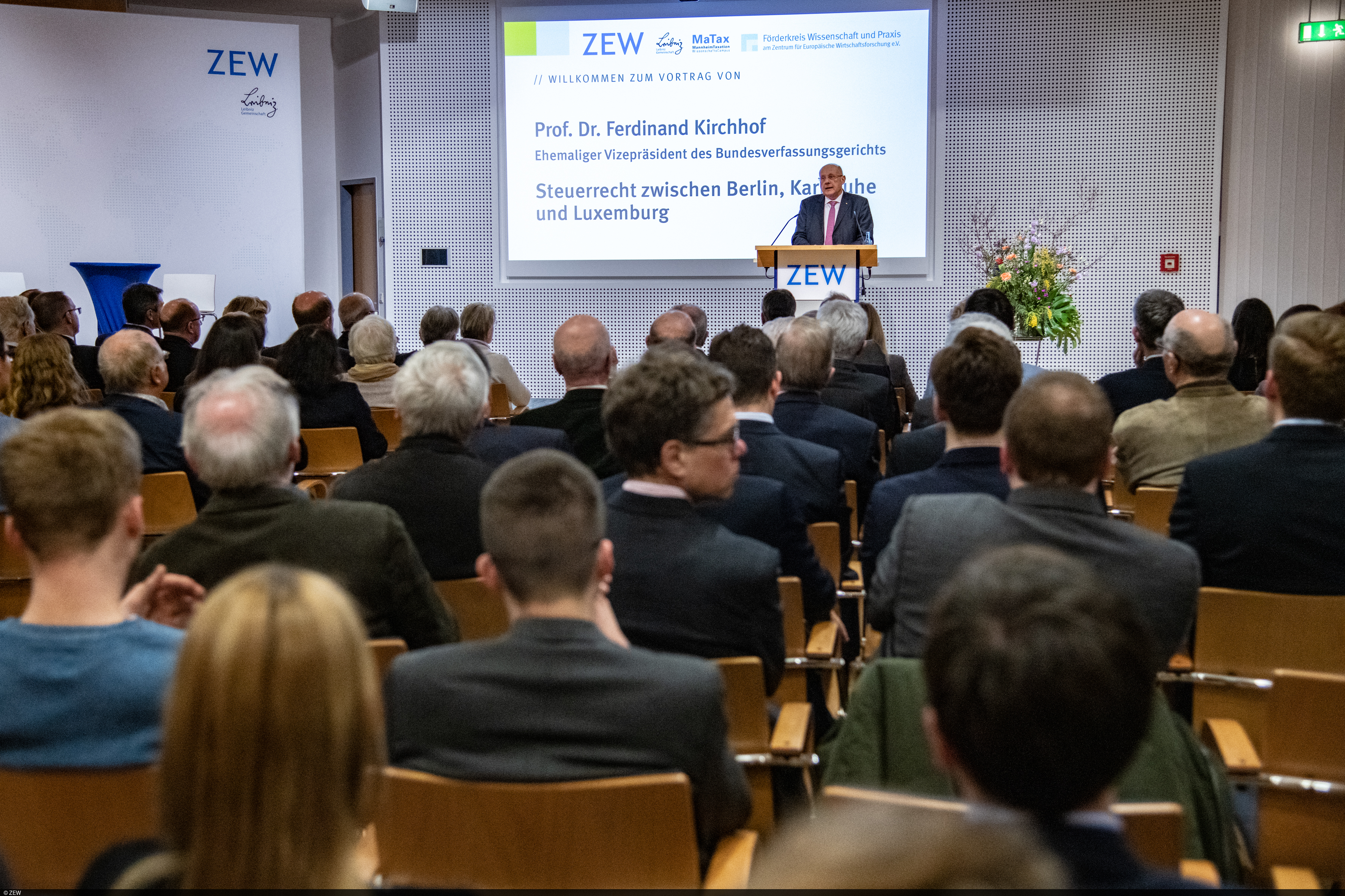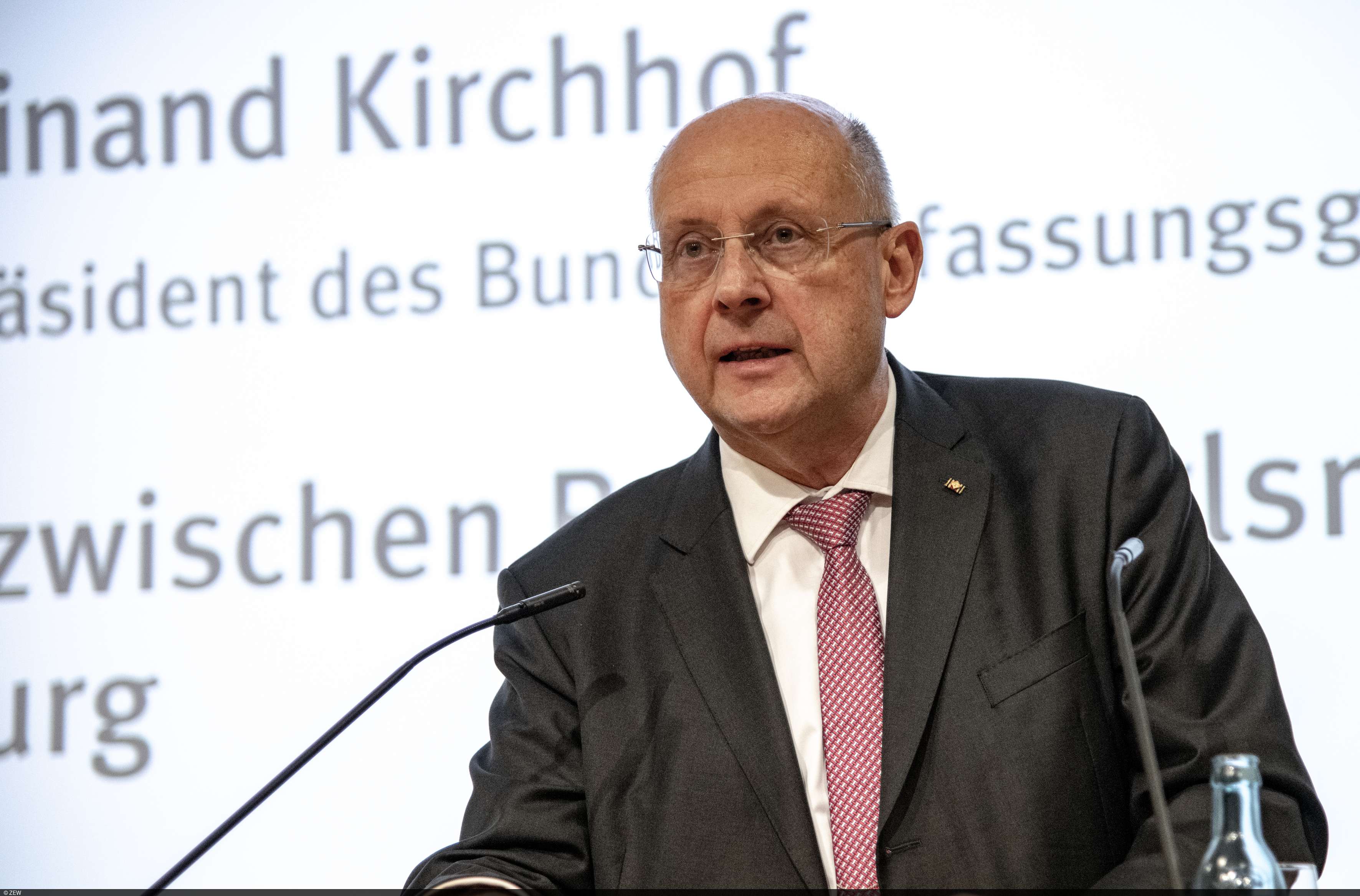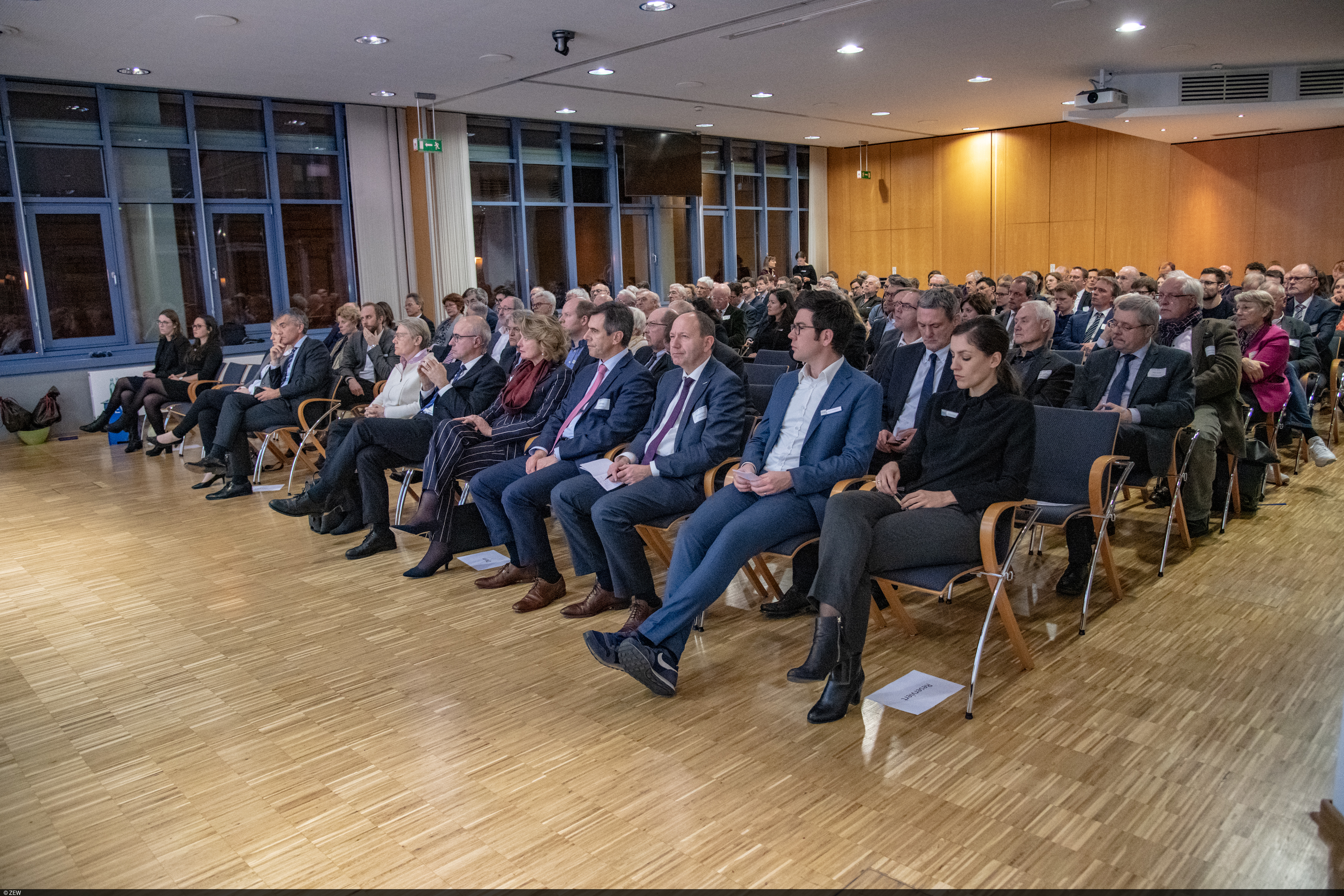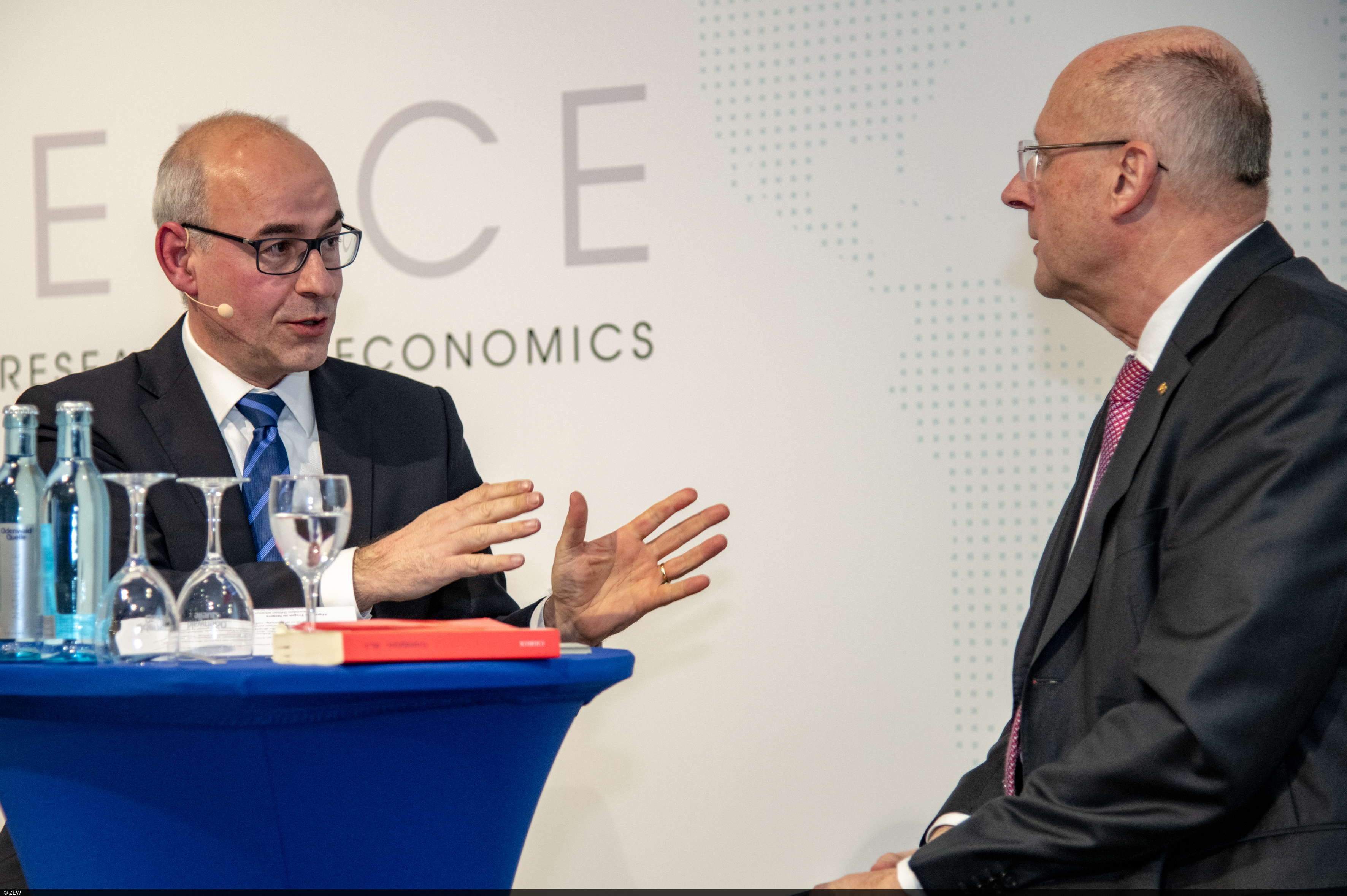Legislation of Institutional Committees Offers a High Degree of Predictability
Public EventsPower and decision-making authorities concerning the European tax system are distributed among various institutions. In their own way, they influence the design of a common European tax system and are equally faced with the challenge of taking national tax policies into account. In a lecture organised as part of the First-Hand Information on Economic Policy series at the ZEW – Centre for European Economic Research in Mannheim, Professor Ferdinand Kirchhof, former Vice-President of the Federal Constitutional Court, addressed this complex relationship between the different actors of tax policy in a talk on 14 February 2019.
“European tax legislation requires a uniform decision,” Professor Ferdinand Kirchhof opened his lecture to 110 guests from the realms of economics and academia at the ZEW – Leibniz Centre for European Economic Research in Mannheim. Reconciling the national and European fiscal interests of 28 different tax systems is not an easy task. In view of the current anti-European and protectionist tendencies, the European Union is now, after its 70-year-long history of success, facing an increasing dichotomy between integration and separation. “As history has shown, the concept of an increasingly connected and cooperative EU has indeed proven successful. The prevailing divide between EU Member States demonstrates, however, just how difficult this task is. This holds particularly when it comes to ensuring a consistent system for tax legislation,” said the former judge during his lecture “Tax Law Between Berlin, Karlsruhe and Luxembourg”, which was supported by the Leibniz ScienceCampus Mannheim Taxation (MaTax).
According to Kirchhof, in order grasp the scope of the issue, one must consider the different actors of European taxation: the EU Commission, the European Council, the European Parliament and the European Court of Justice (ECJ). The EU Commission has shown the greatest commitment towards strengthening European integration and has been a strong supporter of a uniform European tax law. It has, for instance, argued in favour of eliminating tax-related barriers both to cross-border trade and to all European citizens. When it comes to tax matters, the Commission supports measures that accelerate and facilitate settlement processes, and is therefore an advocate of moving away from the principle of unanimity to the principle of majority rule in tax decisions. This could contribute to a greater harmonisation in areas that have so far been lacking uniform regulation, such as value-added taxation or excise legislation.
